
Comvita Medihoney™ is saving the wild
By Jamie Joseph, Saving the Wild Founder
The first time I knew for sure that Comvita walked the talk was when I contacted them at the start of 2020 as bushfires ravaged across Australia.
“I am about to book a flight to Sydney.” The email began. “And then I’m going to drive across the country and see how I can support the wildlife carers on the frontline. Could you please donate some Medihoney™ for the injured?”
In no time at all we were on a call, emotions running high, and Comvita quickly arranged a very large supply of life saving product.
I flew to Australia, hired a van, filled it with Medihoney Wound Gel™, and hit the road.
There are so many memories from those weeks on the road that I will never forget. There is of course the absolute devastation, images that will haunt me forever. But there was also beauty in the devastation.
Seeing exhausted wildlife carers suddenly light up like a Christmas tree when I handed over boxes of Medihoney™. Rocking a baby wombat to sleep. Meeting good humans everywhere doing great things. Sitting in someone’s lounge that looked like a war zone with bandaged up kangaroos everywhere, only for one to stumble over and give me a hug. And watching the incredible vets work around the clock to treat serious injuries.
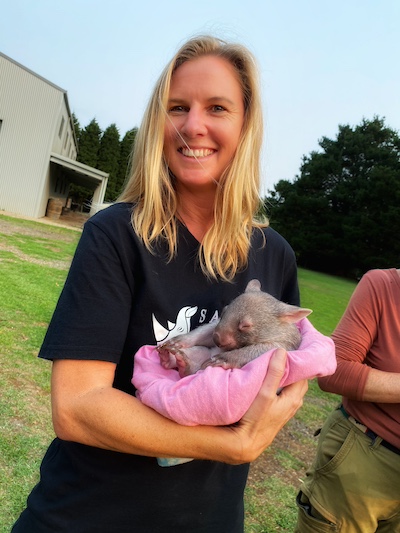
A few weeks after the bushfires, back in New Zealand, Comvita and Saving the Wild joined forces in what is fast becoming a journey of epic proportions.
Conservation is hard. Conservation is long. The Saving the Wild bee keeping project in Kenya, implemented by our Kenyan partner Big Life Foundation, is finally sustainable after surviving the worst drought in 40 years.
This year, I have been enjoying the rapid gratification of supplying Comvita Medihoney Wound Gel™ to the wildlife carers and vets in South Africa whom I have the great honour to work with. I have been spending precious time with two courageous rhino orphans named David and Jonathan, and I have had the extraordinary experience of walking with pangolins rescued from the grip of poachers. Rhinos are killed for their horns, and pangolin for their scales - and both are keratin, nothing but the stuff in fingernails.
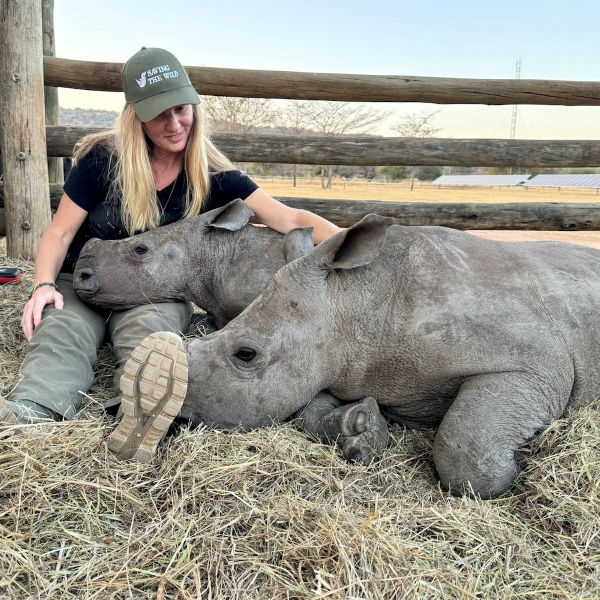
Rhino orphans aren’t immediately found when their mother is killed. Hours and days can go by, and they can fall victim to lions and hyenas before being rescued by humans. When David came in, he was covered in his mother’s blood, terrified and traumatised, he would push anyone away if we tried to get too close. David and Jonathan came into the sanctuary just days apart, and eventually David let his guard down and now him and Jonathan are besties, like brothers. And they both love cuddles from their human moms.
The Medihoney™ has been used to treat their wounds, and has also been used on their 24/7 protectors; loyal K9s with breeds that include malinois and bloodhound - excellent deterrents to poachers. Their super scent can find illegal wildlife products in vehicles and luggage, and pick up the cold scent of poachers.
The pangolin wounds have been far more severe. These mesmerising little creatures are kept in a rubbish bin or a poacher’s bag and dragged around for two weeks and even longer, starved and bruised while the poachers look for a buyer. I have seen phenomenal results where the Medihoney™ has been applied to wounds, but internally there are times when their organs collapse and they don’t make it.
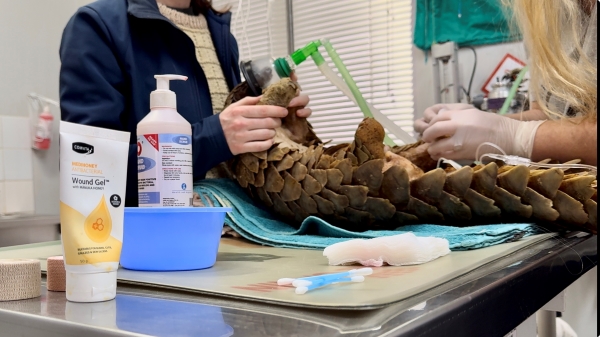
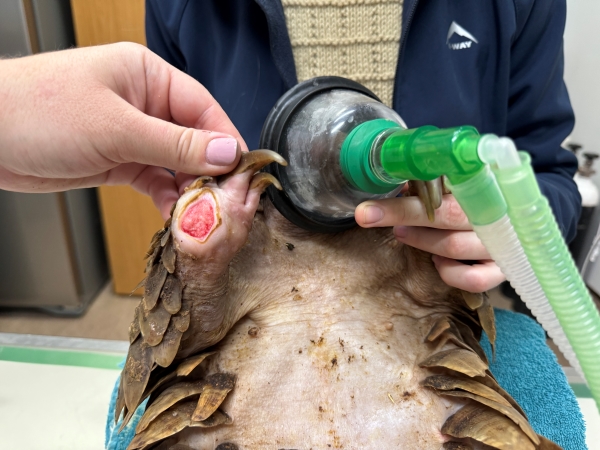
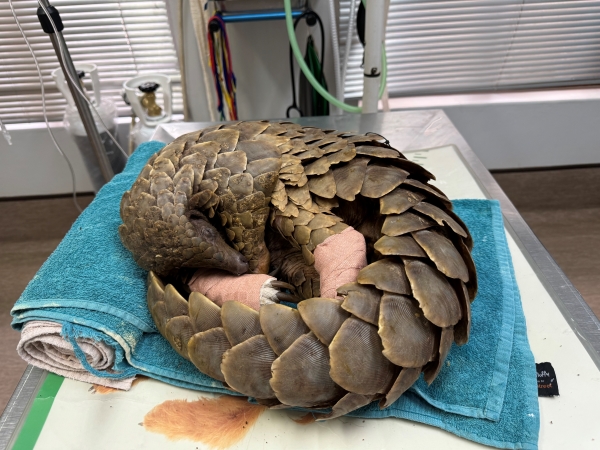
Conservation is hard, but we need to save what we can. Every life counts, and I am so grateful to Comvita for supporting nature in need.
October 2024
Please follow and support Jamie and Saving the Wild’s work to save wildlife.
